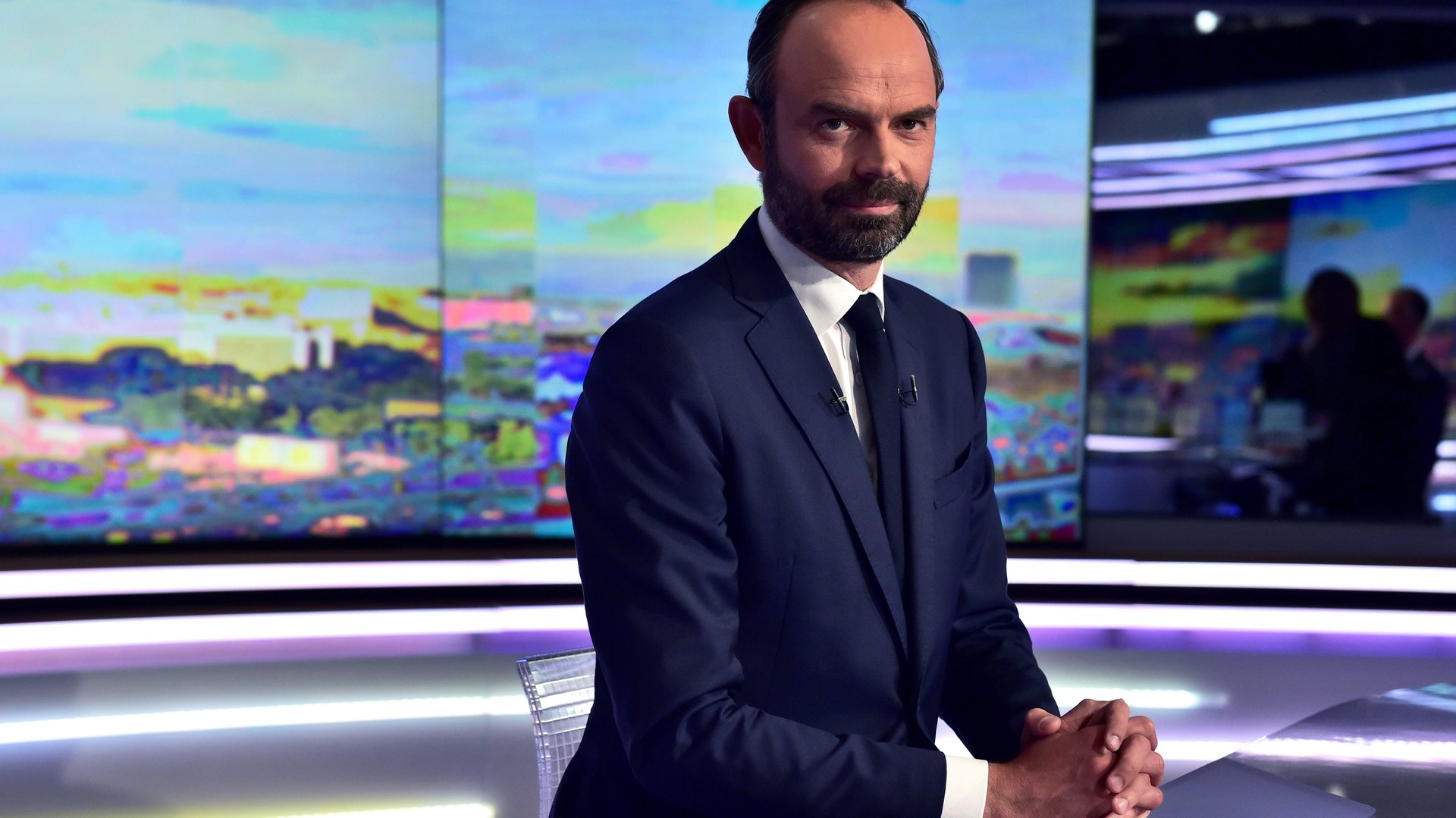Emmanuel Macron chose a male misogyny-prone novelist to run his pro-female parliament
Politics can be a sleazy affair—a fact known all too well by the French. There was the scandal of Dominique Strauss-Kahn’s rough orgies (paywall), and the late-night escapades of François Hollande and his actress lover (paywall), to mention just a few.


Politics can be a sleazy affair—a fact known all too well by the French. There was the scandal of Dominique Strauss-Kahn’s rough orgies (paywall), and the late-night escapades of François Hollande and his actress lover (paywall), to mention just a few.
Up until now, the electoral victory of France’s newest centrist president, Emmanuel Macron, has been relatively short on sleaze. His campaign focused intensely on upending the country’s political landscape by sidelining traditional parties and politicians, whilst making room for fresh faces with party quotas for women, minorities, and political novices in parliament.
But then came Edouard Philippe, Macron’s pick for prime minister, a center-right moderate and mayor of the Normandy port town of Le Havre, who will lead Macron’s bid for a parliamentary majority in June elections. Half of the candidates Macron picked to run under his new party, En Marche, are women.
As it happens, Philippe has also co-authored political novels about the trials of campaign politics: L’Heure de vérité (the Hour of Truth) in 2007 and Dans l’ombre (In the shadow) in 2011. While the first is a who-done-it-type thriller, the latter describes in sordid detail the dark betrayals and compromises of an electoral victory—accompanied by a lot of misogynistic bluster from the novel’s narrator. In one particularly eye-raising passage, the narrator, a top political aide, ogles at the breasts of Marilyn, the press secretary, which he describes as a “trophy”:
“Marilyn has small breasts. Normally I don’t like that. My thing, I admit, would be breasts that are instead a little round, not overwhelmed and sagging, no, not heavy to the point of collapse, but instead, something in relief. Not small, harsh, and hazardous protrusions. The models that parade around showing off their vertical flatness leave me speechless. A real chest is round, it is comfortable, it is welcoming and one must be able to put his nose in the middle with jubilation.”
The book’s demeaning portrayals of women (link in French) in politics are awkward for an administration rooted in gender equality. In another passage, the narrator says a female political opponent “had in herself that imperceptible dryness of women who would never be mothers.” He adds that this quality was a strength, because she had “a man’s heart in a woman’s body.” Of course, no one can say whether the feelings of the writer overlap with those of his characters.
Still, feminist advocates have raised other concerns. While some conservatives welcomed Philippe’s appointment for bridging partisan divides, feminists expected Macron to live up to his expressed wish during the campaign to select a woman prime minister. Others question whether Philippe’s voting record (link in French) as an MP on same-sex marriage and single parent adoption shows a lack of commitment to female causes.
In Philippe’s other novel, he described the French prime minister’s office as “a type of hell: golden, sought after by many and satisfying for the ego, but hell nonetheless.” If life imitates art, Macron’s new government could be headed for trouble.